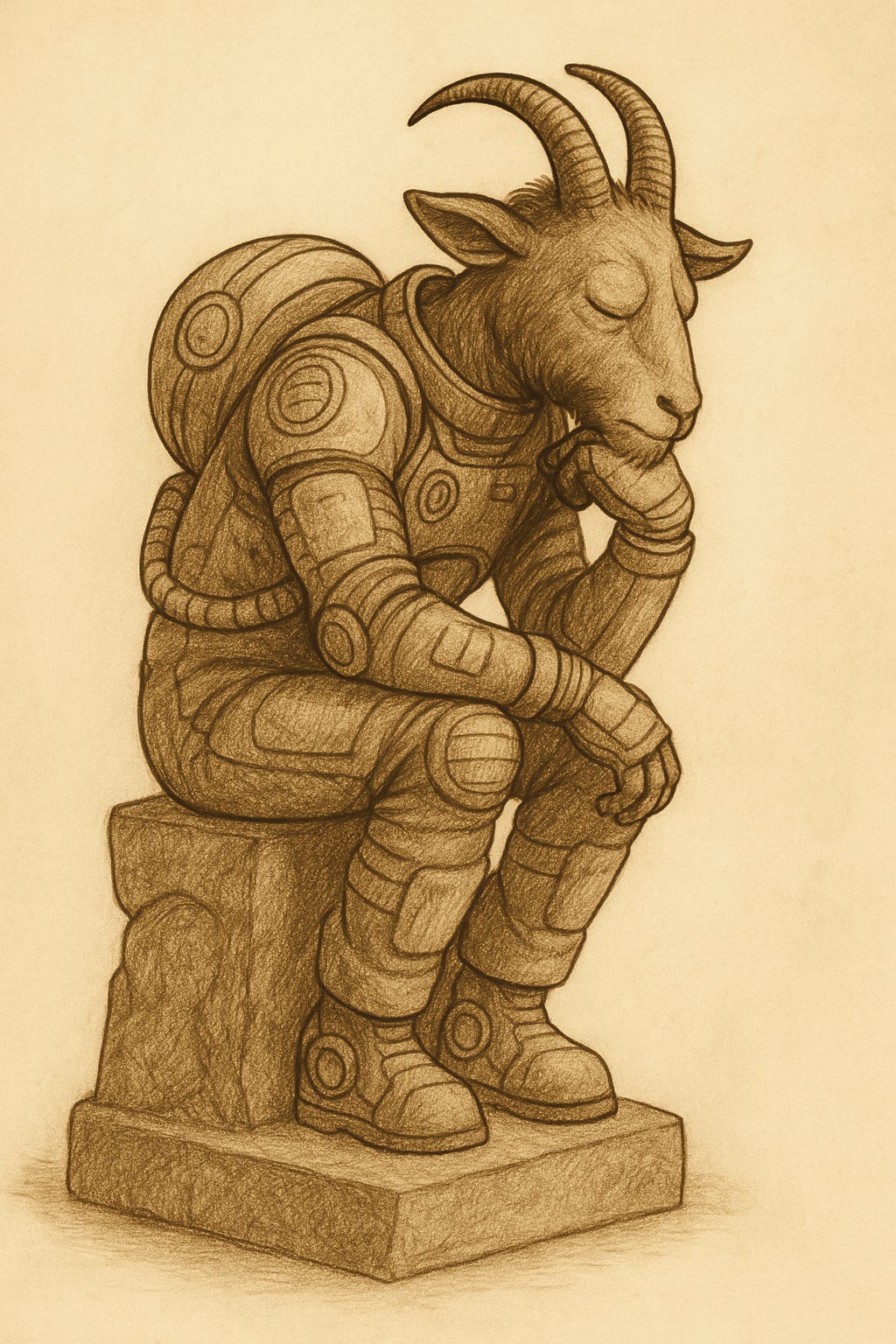Sci-Fi and Fantasy
Where do you draw the line between science fiction and fantasy?
One difference most readers or fans will point to is that fantasy can’t happen within the laws of physics, whereas sci-fi takes place within those laws. Fantasy might include magical wizards with powers that defy our traditional understanding of how things work, whereas science fiction is all about robots, aliens, or futuristic technological discoveries.
The line seems pretty clear, then—right?
Well… there have been some pretty clever worlds built around where this line blurs. I think it’s interesting to zoom into that blurry line a bit more, to see if we can’t get some of it into focus today.
To be sure, there’s pure fantasy that would be tough to describe as plausible within the laws of physics. The Lord of the Rings universe is a great example of this sort of world, where Gandalf summons eagles with his mind, or putting a ring on turns you invisible (but also links you directly to Sauron). Alice in Wonderland is an even better example, where things no longer seem to follow the rules of the natural world.
Then, there’s science fiction like Severance, where a clear set of logical rules are followed. Nothing magical happens, but instead we get to see speculation into the realm of what’s just about to be possible: what happens when you split someone’s identity in two? In fact, great science fiction—like much of the work of Isaac Asimov—really does end up coming true, while cautionary tales try to prevent that future from becoming a reality.
With sci-fi, the laws of physics matter. With fantasy, a separate internal set of rules often works in tandem with the laws of physics, but sometimes the physical laws aren’t in force at all.
Well, there you go! Case closed.
All right; not so fast. You might be reminded of the quote from Arthur C Clarke, that any sufficiently advanced technology is indistinguishable from magic. You’re right to go there!
There have been several “fantasy” universes that have been revealed to be sufficiently advanced tech masquerading as magic or some other kind of metaphysical power. In the Marvel Universe, Thor and the Gods of Asgard will sometimes use advanced technology and call that magic; from their perspective, what’s the difference?
Dune and The Wheel of Time aren’t exactly like this, but they do skirt the line and leave you wondering at several spots. I think that’s half the fun of stories like these—you want to figure out whether there could be some explanation for the stuff that’s happening, so your imagination tries to come up with plausible explanations. In other words, this stuff really makes you think.
With the Star Wars universe, you have advanced technology capable of traveling faster than is currently possible, cryogenics that actually work, and humanoid robots that are useful and functional. Juxtaposing this is the archaic (and now nostalgic) 70s-era tech, kept alive and consistent since A New Hope first ran in theaters in 1977. At the same time, you have actual magic—the Force—factoring into any battles that involve Jedi or Sith, and this magic can be just as big of a factor as superior technology.
In fact, the Force is treated somewhat like a technology in the Star Wars universe. The Jedi undergo a science-based study of how the force works, learning to channel it throughout their training and using reason-based techniques to modify their abilities. Why aren’t there specific weapons like force-guns that concentrate the Force tenfold into one spot? If you know the answer, let me know in the comments:
And: that’s really all for today. I wanted to tap into the brain trust out there in the comments section, and to let any Substack regulars know that there is a thriving science fiction community on the platform. Folks participate in an event I helped to start called Sci-Friday, and the explosion in creative output and sharing has been nothing short of amazing these past two years.
If you’re into the social aspect, you can follow me on Notes, where you will see lots of pictures of Dink-Dink, and a weekly post about science fiction writing.




The Singularity Chronicles blends the two genres. Books 1 and 2 are classic sci-fi, and books 3 and 4 will be more like classic fantasy, with 4 blending everything together. That's making it hard to get going on writing book 3.
I always had a much simpler heuristic in my head. Fantasy = olden days/medieval setting. Sci-fi = future or alternative present setting. Clearly this doesn't always hold up, but I feel it's generally helpful as a rule of thumb, especially when looking at video games and TV culture.